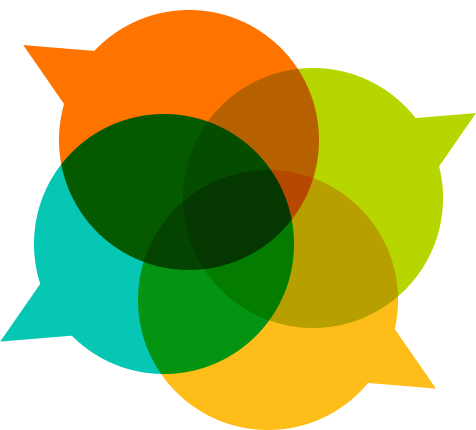This study has various interesting implications for our work. Unfortunately the images didn’t copy over - I recommend to read the actual blog post.
“The findings show that a larger population size and social connectedness are crucial for the development of more sophisticated technologies and cultural knowledge”
Some questions this raises:
- How can we increase opportunities to observe, and connect with mentors?
- What is the importance of network size and diversity? And what types of learning mechanisms work best in larger networks vs smaller cohorts.
Blog post -> How social networks can make us smarter
November 15, 2013
http://www.kurzweilai.net/how-a-choice-of-social-learning-networks-can-make-us-smarter
Experiment 1: participants with little or no prior experience in image editing were asked to recreate this target image using a complex editing program called GIMP
The secret to why some cultures thrive and others disappear may lie in our social networks and our ability to imitate, rather than our individual smarts, according to a new University of British Columbia study.
The study, published in the Proceedings of the Royal Academy: Biological Sciences (open access), shows that when people can observe and learn from a wider range of teachers, groups can better maintain technical skills and even increase the group’s average skill over successive generations.
The findings show that a larger population size and social connectedness are crucial for the development of more sophisticated technologies and cultural knowledge, says lead author Michael Muthukrishna, a PhD student in UBC’s Dept. of Psychology.
“This is the first study to demonstrate in a laboratory setting what archeologists and evolutionary theorists have long suggested: that there is an important link between a society’s sociality and the sophistication of its technology,” says Muthukrishna, who co-authored the research with UBC Prof. Joseph Henrich.
[+]
Experiment 2: participants were asked to tie a system of
connected knots commonly used in rock-climbing
Learning new skills
For the study, participants were asked to learn new skills — digital photo editing and knot-tying — and then pass on what they learned to the next “generation” of participants.
The groups with greater access to experts accumulated significantly more skill than those with less access to teachers. Within ten “generations,” each member of the group with multiple mentors had stronger skills than the group limited to a single mentor.
Groups with greater access to experts also retained their skills much longer than groups who began with less access to mentors, sustaining higher levels of “cultural knowledge” over multiple generations.
According to the researchers, the study has important implications for several areas, from skills development and education to protecting endangered languages and cultural practices.
More important than innate intelligence
“People often assume that the success of our species is based on innate intelligence,” Muthukrishna explained to KurzweilAI.
“These results suggest that rather than our individual intelligence, it is our sociality — being embedded in large, well-connected populations — that explains our success. In the modern world, innovations like the Internet and online social networks can support these processes by giving us access to an unprecedented number of people and their ideas.
“An example of an application of this research might be in how we design models of mentorship to facilitate cultural transmission in a company. Although a mentor-protege model is very common, our research suggests that giving people access to multiple mentors might result in better outcomes.”
(Credit for images: Michael Muthukrishna et al., Proceedings of the Royal Academy: Biological Sciences)
Abstract of Proceedings of the Royal Academy: Biological Sciences paper
Archaeological and ethnohistorical evidence suggests a link between a population’s size and structure, and the diversity or sophistication of its toolkits or technologies. Addressing these patterns, several evolutionary models predict that both the size and social interconnectedness of populations can contribute to the complexity of its cultural repertoire. Some models also predict that a sudden loss of sociality or of population will result in subsequent losses of useful skills/technologies. Here, we test these predictions with two experiments that permit learners to access either one or five models (teachers). Experiment 1 demonstrates that naive participants who could observe five models, integrate this information and generate increasingly effective skills (using an image editing tool) over 10 laboratory generations, whereas those with access to only one model show no improvement. Experiment 2, which began with a generation of trained experts, shows how learners with access to only one model lose skills (in knot-tying) more rapidly than those with access to five models. In the final generation of both experiments, all participants with access to five models demonstrate superior skills to those with access to only one model. These results support theoretical predictions linking sociality to cumulative cultural evolution.
References:
Michael Muthukrishna et al., Sociality influences cultural complexity, Proceedings of the Royal Academy: Biological Sciences, 2013, doi: 10.1098/rspb.2013.2511 (open access)
Related:
